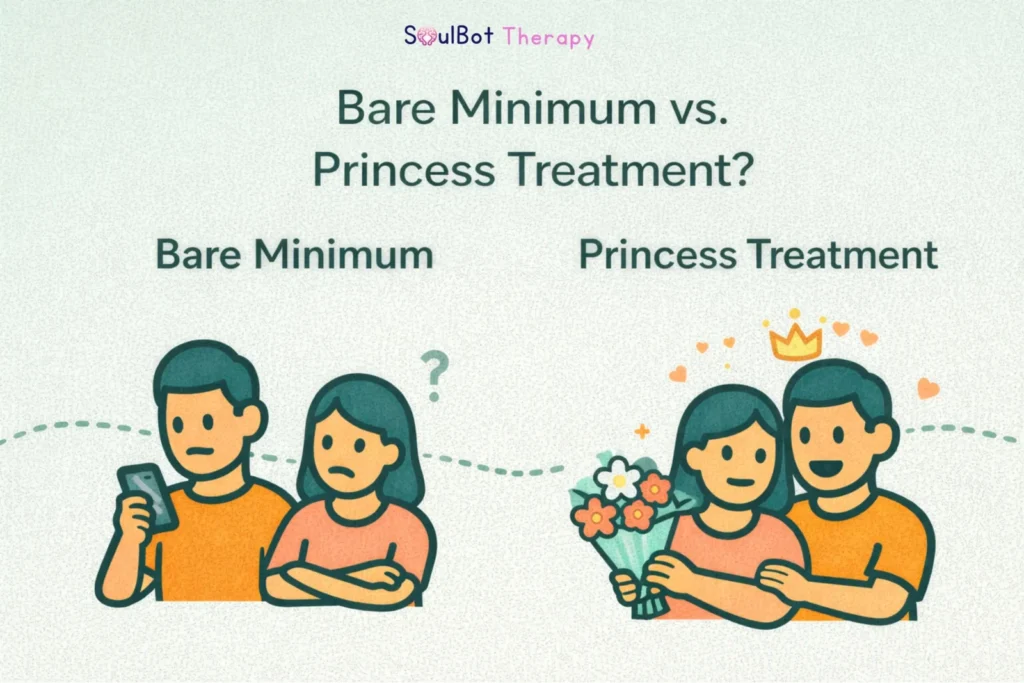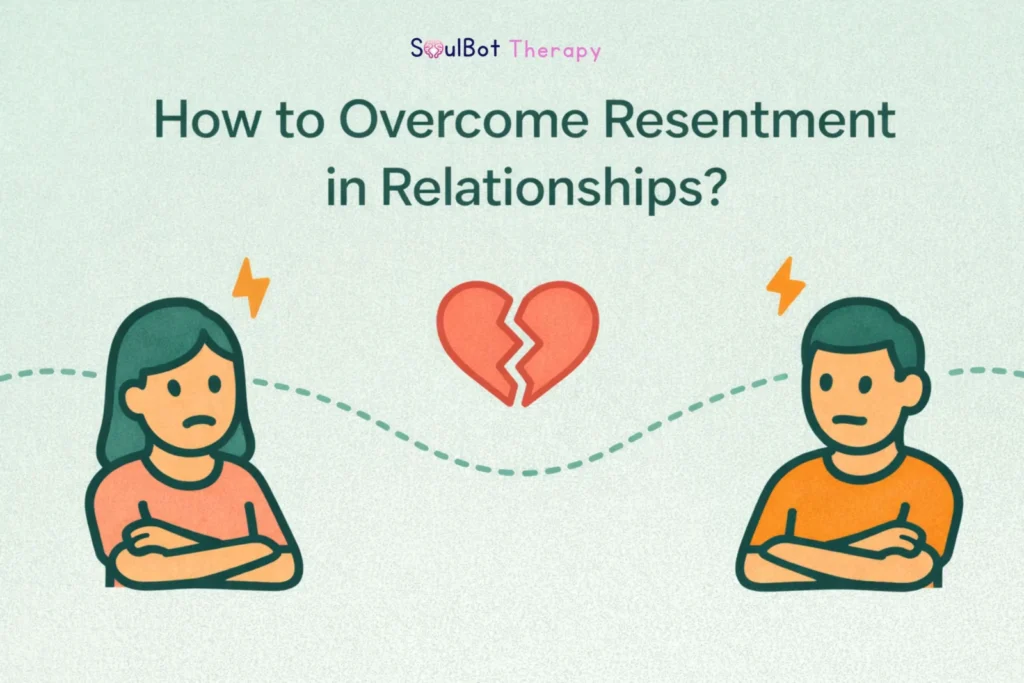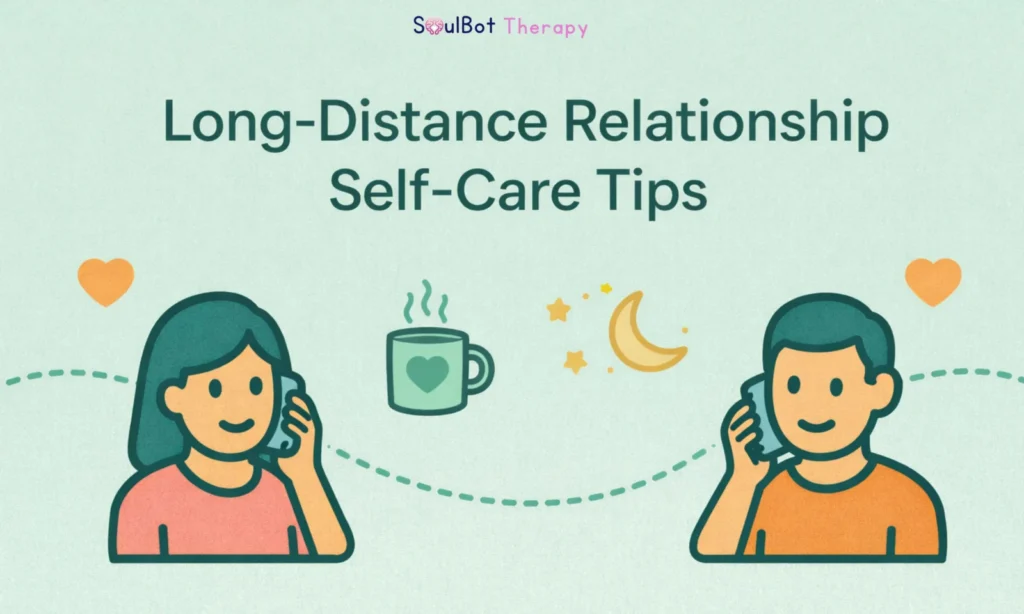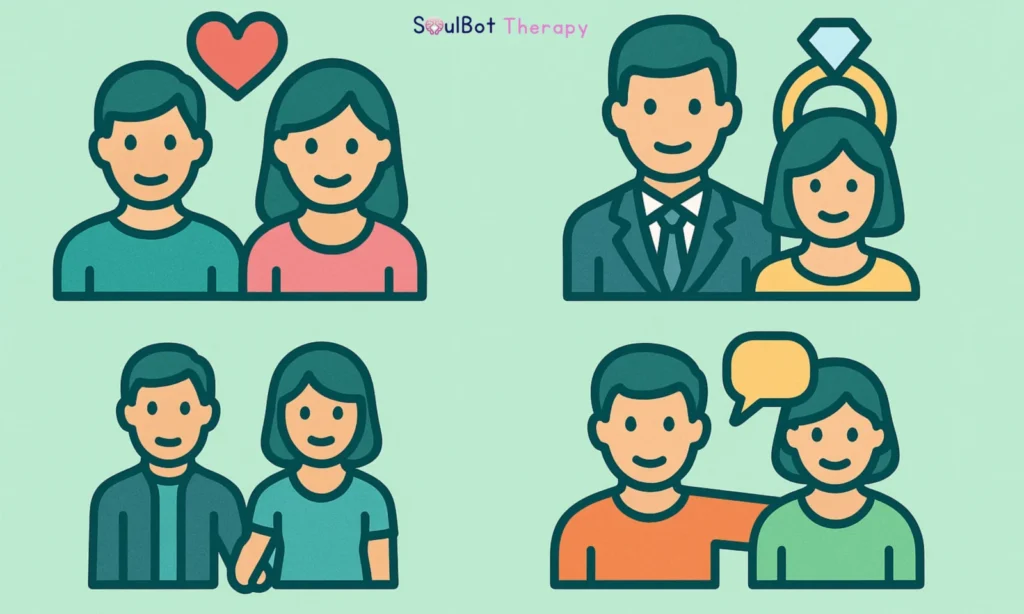What is Mental Health?
Mental health is more than the absence of mental illness—it’s a state of well-being that impacts how we think, feel, and interact with the world. A healthy mind enables us to handle stress, build relationships, and contribute meaningfully to society.
💡 Mental health and identity are deeply connected. If you’re exploring your sense of self, take the Sexual Orientation Self-Discovery Test to understand better who you are.But what are the 4 types of mental health? It is typically categorized into four main dimensions that contribute to overall well-being. These are:
✔ Emotional Health – The ability to regulate emotions, thoughts, and behaviors. It forms the foundation of overall mental well-being.
✔ Psychological Health – Encompasses cognitive abilities, resilience, and self-worth. A strong psychological state helps in processing emotions and making sound decisions. Just as our inner world matters, our external connections also play a key role.
✔ Social Well-being – Relates to relationships, communication, and social support. Meaningful connections can greatly impact emotional and psychological stability. Beyond relationships, a deeper sense of purpose adds to overall mental wellness.
✔ Spiritual Well-being – Involves inner peace, purpose, and personal values. It helps individuals find balance and direction in life.
By understanding these dimensions, individuals can take proactive steps toward improving their mental well-being. Each of these dimensions plays a unique role in shaping our overall mental well-being, and understanding them can lead to a healthier mind and body. Let’s explore each in detail.
1. Emotional Health: The foundation of mental well-being
Emotional health refers to how effectively we manage emotions and cope with life’s challenges. It includes the ability to:
- Express emotions in a healthy way.
- Adapt to stress, change, and adversity.
- Maintain a positive self-image.
🔹 Why it matters
Emotional health is essential for building resilience and managing stress. Poor emotional well-being can lead to anxiety, depression, and difficulty maintaining relationships.
💡 Tip to improve emotional health:
- Practice mindfulness techniques like meditation for stress to regulate emotions.
- Engage in journaling to reflect on thoughts and feelings.
- Talk to a mental health specialist if you experience persistent emotional distress.
🔗Emotional health is linked to better stress management and decision-making.
2. Psychological Health: Cognitive and mental functioning
Psychological health includes cognitive abilities, mental resilience, and problem-solving skills. It determines how we:
✔ Process thoughts and emotions – Developing awareness and understanding of one’s mental state.
✔ Handle setbacks and develop coping mechanisms – Building resilience to navigate life’s challenges effectively. Having a strong mindset also contributes to self-belief.
✔ Maintain self-confidence and motivation – Staying driven and trusting in one’s abilities despite difficulties.
🔹 Why it matters
Poor psychological health can lead to negative thought patterns, poor decision-making, and lower resilience in stressful situations.
💡 Ways to strengthen psychological health:
- Engage in cognitive therapy exercises to challenge negative thoughts.
- Prioritize adequate sleep and nutrition for optimal brain function.
- Try MBCT therapy (Mindfulness-Based Cognitive Therapy) to develop emotional resilience.
🔗 Studies show that CBT and mindfulness-based therapy can significantly improve psychological health and cognitive functioning.
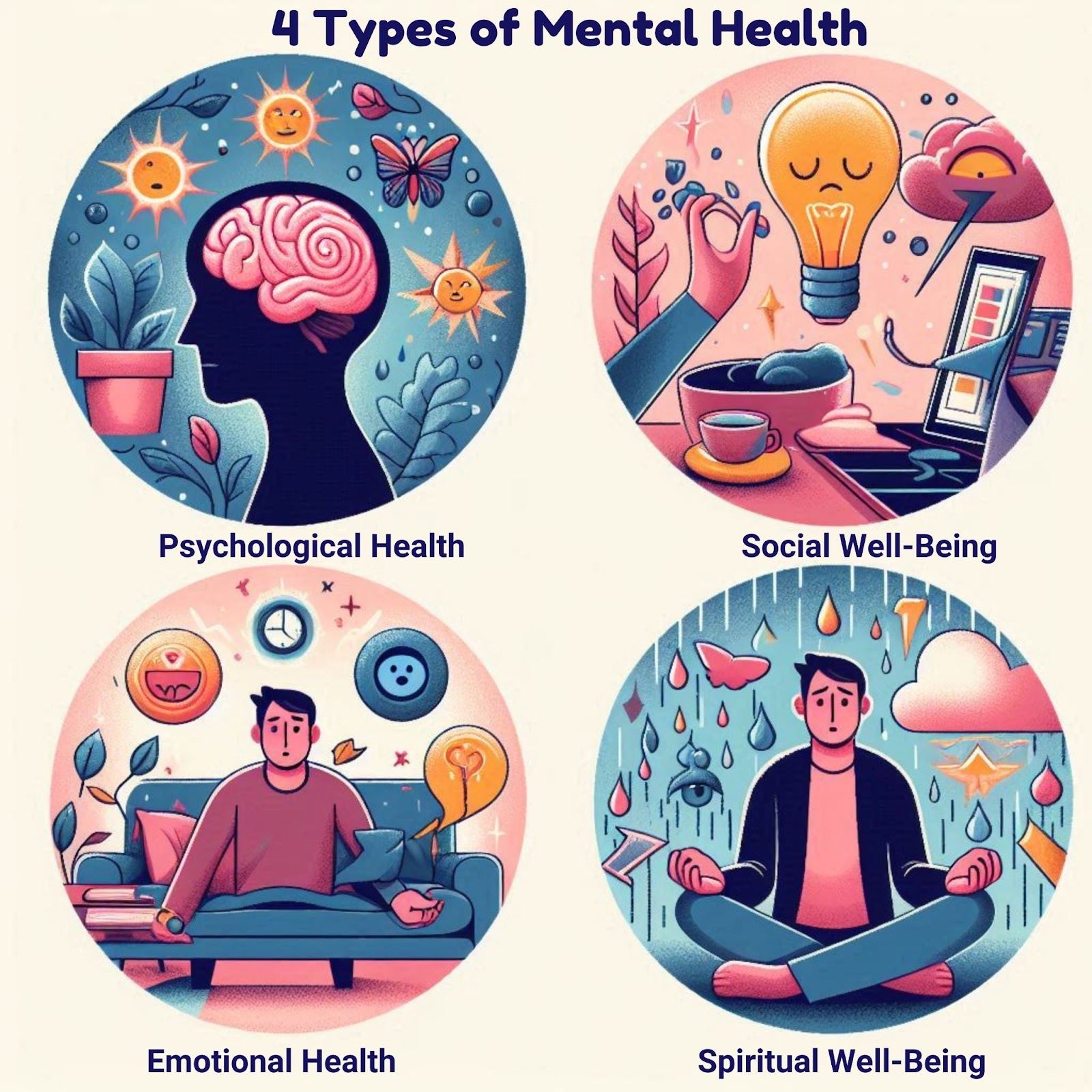
3. Social Well-Being: The role of relationships
Humans are social beings, and our relationships play a significant role in mental well-being. Social health includes:
✔ Having a strong support system – Surrounding yourself with people who offer encouragement and understanding.
✔ Maintaining healthy communication – Expressing thoughts openly while also listening and respecting others. A supportive environment fosters a deeper connection.
✔ Feeling a sense of belonging and connection – Building relationships that create security and emotional well-being.
🔹 Why it matters
A lack of social well-being can lead to loneliness, isolation, and increased stress levels. Taking a holistic approach to mental health ensures that emotional, psychological, social, and spiritual well-being are all nurtured equally.
💡How to enhance social well-being:
- Spend quality time with family and friends.
- Engage in community activities or support groups.
- Set healthy boundaries to protect your mental space.
🔗Research indicates that strong social connections reduce the risk of anxiety and depression.
4. Spiritual Well-Being: Finding inner peace
Spiritual health isn’t just about religion—it’s about finding purpose, meaning, and a sense of inner calm. This includes:
✔ Engaging in self-reflection and gratitude – Taking time to appreciate life and understand personal growth.
✔ Practicing mindfulness techniques to stay present – Focusing on the present moment to reduce stress and enhance clarity. A mindful approach also strengthens inner values.
✔ Connecting with beliefs, values, or faith – Finding meaning through personal beliefs and a sense of purpose.
🔹 Why it matters
Those with strong spiritual well-being often experience lower stress levels and greater life satisfaction.
💡How to cultivate spiritual well-being
- Practice daily gratitude.
- Try teen meditation therapy to improve mindfulness.
- Spend time in nature or quiet reflection.
Balancing these elements isn’t always easy, but small, consistent efforts can significantly impact your mental well-being.
🔗Studies suggest that spiritual practices contribute to improved mental and emotional well-being.
The importance of a balanced mental health approach
Each of these four dimensions of mental health contributes to overall well-being. When one is out of balance, it can affect the others.
✔ Emotional and Psychological Health support resilience – A strong mind helps cope with challenges and bounce back from difficulties.
✔ Social Well-being strengthens relationships – Meaningful connections provide emotional security and a sense of belonging. A well-rounded approach also includes inner fulfillment.
✔ Spiritual Health fosters peace and purpose – A deeper sense of meaning contributes to overall mental balance and well-being.
Want to improve your mental well-being? Try SoulBot, an AI-powered tool for stress relief, mindfulness exercises, and self-care tips.
Final Thoughts: Take Charge of Your Mental Health!
Mental health isn’t just about avoiding disorders—it’s about nurturing emotional, psychological, social, and spiritual well-being. By integrating simple habits into your routine, you can enhance not just one, but all four areas of mental health simultaneously.
📌 Take the first step toward better mental health today! Try mindfulness exercises with SoulBot, your AI-powered mental wellness companion.



